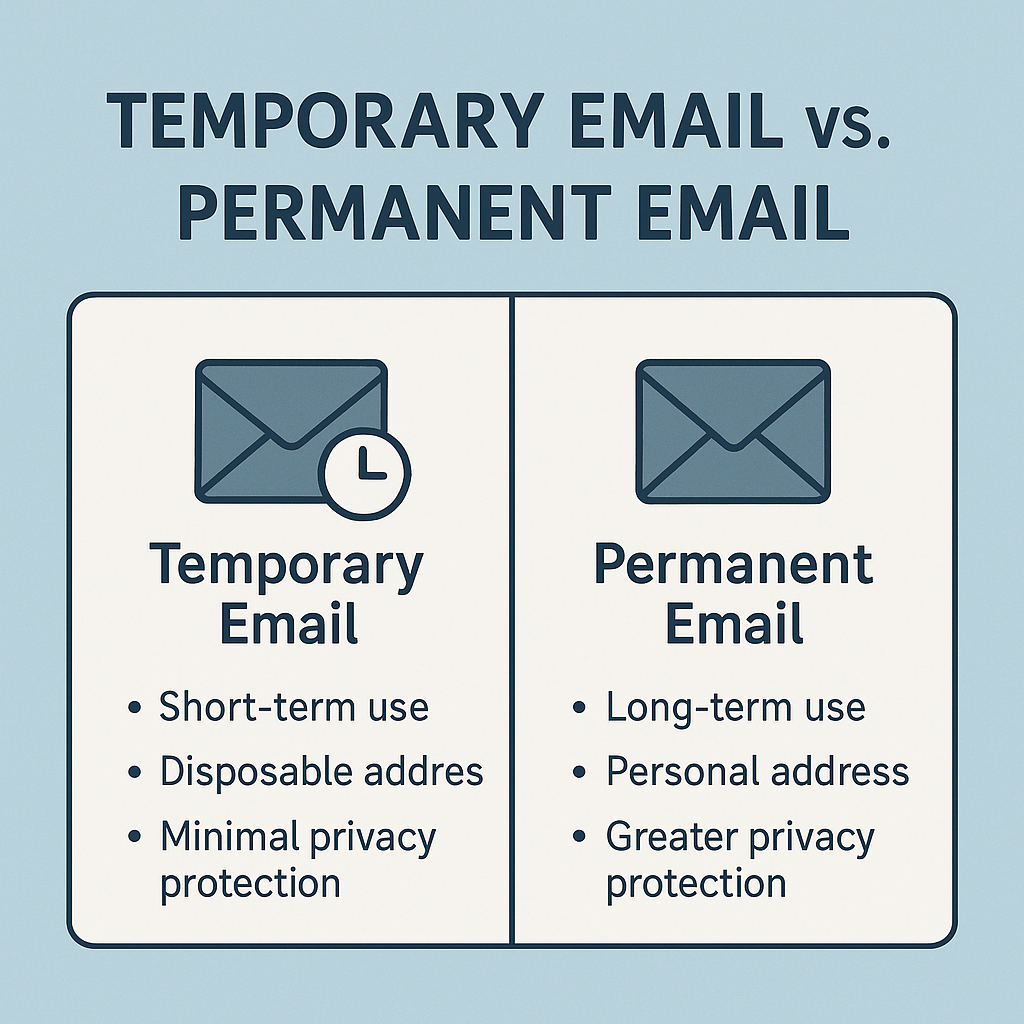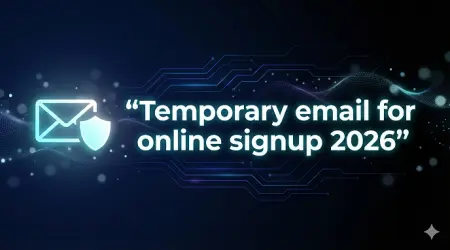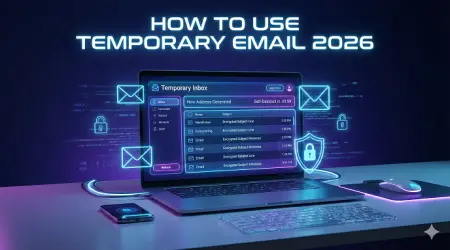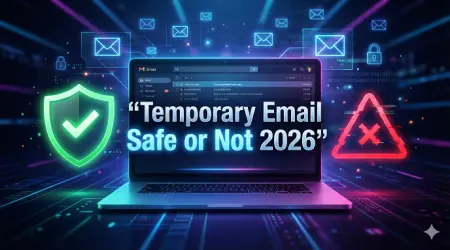

Are Temporary Emails Safe? Shocking Truth You Must Know in 2025
Introduction to Temporary Emails
In today's digital world, email is more than just communication - it's the key to unlocking apps, websites, and online services. But with the rise of spam, scams, and data leaks, people are asking: Are temporary emails safe?
Disposable emails (temporary email services) are perfect for avoiding unwanted subscriptions and preserving your main inbox. They have undoubted advantages, but their security will depend on their use and location.
What Are Temporary Emails and How Do They Work?
Temporary emails are temporary emails where the email has a set expiration date after it is opened, resulting in the email expiring within a few minutes to a few hours. These are perfect when you need to send an email quickly and don't want to distribute your personal email.
Key Features of Disposable Email Services
Auto-delete after a time limit.
No password setup required.
Anonymous and instant email creation.
Why People Use Temporary Emails
There are various reasons as to why people use disposable emails; particularly where privacy and convenience are of concern.
Online Registrations and Free Trials
Register on sites and do not get spam in your mailbox.
Avoiding Spam and Unwanted Promotions
Ideal in the process of testing new services without any lasting effects.
Protecting Personal Privacy
They prevent leakage and hacking of your actual mail.
The Security Side of Temporary Emails
The thing is this, however, they are not entirely safe, right?
Are Temporary Emails Anonymous?
Yes, but only partially. Your IP can be logged by the providers.
Do They Protect You from Hackers?
They minimise risks of spam but are not encrypted, which exposes emails.
Can Temporary Emails Be Tracked?
There are still services that can be traced back particularly when they are being abused.
Risks and Dangers of Using Temporary Emails
Temporary emails may be convenient but they are not bulletproof.
Weak Security Protocols
Lack of any strong authentication implies that accounts are more easily hijacked.
Limited Access and Account Recovery Problems
When your subscription runs out, you will have no access anymore- bad in case you require subsequent logins.
Phishing and Fraud Risks
Fraudsters occasionally utilize temporary emails to defraud the target.
Benefits of Temporary Emails
People have good reasons to use them although there are risks.
Enhanced Privacy Protection
Third-party marketers can never get your personal inbox.
Spam Prevention
No spam mail in your primary account.
Quick and Convenient Use
No registration, it is easy.
Safe Use Cases for Temporary Emails
If used wisely, they can be beneficial.
- Short-Term Sign-Ups: Testing platforms or forums.
- Free Trials: E-books, whitepapers or resource downloads.
- One-Time Online Purchases: Purchases in which you have no intention of returning.
When NOT to Use Temporary Emails
There are too risky places to dispose of emails:
- Banking and Financial Services -Always apply a secure, validated email.
- Social Media Accounts- You are exposing yourself to a permanent account loss.
- Professional Work – Not suitable for career or business use.
Best Practices to Stay Safe with Temporary Emails
- Choose reputable providers with SSL encryption.
- Combine with VPNs for better anonymity.
- Privacy policies should always be read in order to prevent tracking your data.
Alternatives to Temporary Emails
In case you are worried about safety, use the following instead:
- Alias Emails (similar to Gmail) +.
- ProtonMail (Encrypted Email Service), Tutanota (Encrypted Email Service).
- SimpleLogin (Disposable Forwarding Options).
Expert Opinions on Temporary Email Safety
Cybersecurity experts agree: Temporary emails are safe to use in the short term, but should never be a substitute for a main email account. They are also most effective when it comes to spamming and privacy, but should not be applied to sensitive or permanent sign-ups.
FAQs About Temporary Emails
Q1. Are temporary emails safe for banking?
No. Never use a doubted and unsafe email to bank.
Q2. Are temporary emails trackable?
Yes, there are IP address loggers.
Q3. Are disposable emails legal?
Yes, they are legal but are not to be abused to commit fraud.
Q4. What is the life span of temporary emails?
Between 10 minutes and 48 hours, according to the service.
Q5. Will temporary emails can defend me against hackers?
They are spam blockers not end-to-end encryppers.
Q6. Which is the alternative to temporary emails?
Encrypted services like ProtonMail or alias features in Gmail.
Conclusion: Should You Trust Temporary Emails?
So, are temporary emails safe?
Yes--but only when used responsibly. They're perfect for spamming, privacy, and signing up for one-time services. However, they shouldn't be considered a replacement for permanent, secure email accounts when handling sensitive information like banking, work, or long-term accounts.




